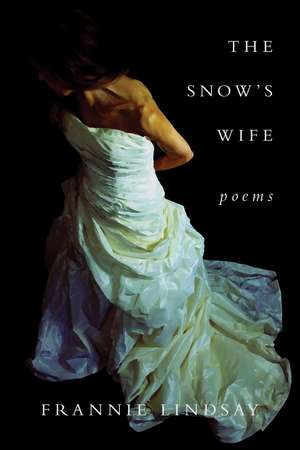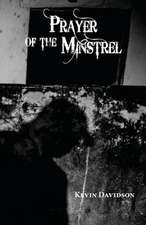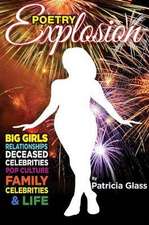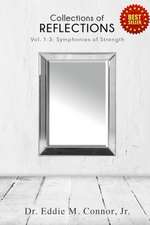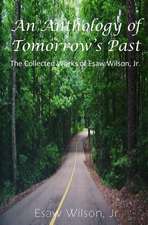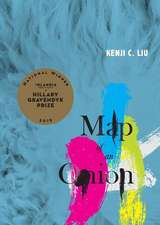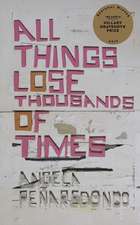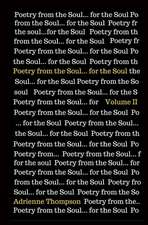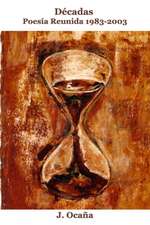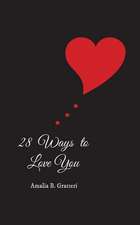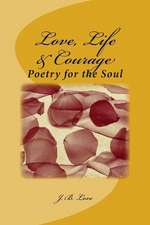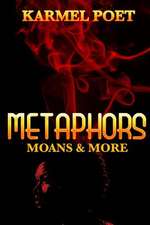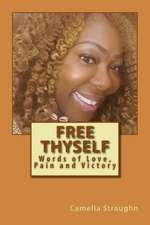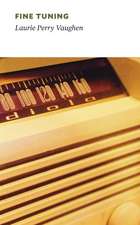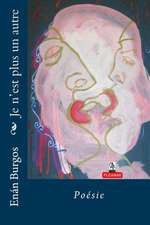The Snow's Wife
Autor Frannie Lindsayen Limba Engleză Paperback – 2 noi 2020
The Snow’s Wife reaches beyond the sorrow of the poems’ speaker and includes the reader in the difficult, loving acceptance of mortality. Unafraid to look beyond the sentimentality of grief, Lindsay draws an unflinching and intimate portrait of a conflicted yet tender relationship. Illustrating the strain that an expected death can place upon a marriage, and the myriad and surprising ways in which such strain expands the heart, The Snow’s Wife examines the crises of faith that arise naturally during intimate end-of-life caregiving.
Preț: 115.61 lei
Nou
Puncte Express: 173
Preț estimativ în valută:
22.12€ • 24.11$ • 18.64£
22.12€ • 24.11$ • 18.64£
Carte disponibilă
Livrare economică 02-16 aprilie
Livrare express 19-25 martie pentru 17.43 lei
Preluare comenzi: 021 569.72.76
Specificații
ISBN-13: 9781933880815
ISBN-10: 1933880813
Pagini: 104
Ilustrații: N-A
Dimensiuni: 152 x 229 x 13 mm
Greutate: 0.18 kg
Ediția:Nouă
Editura: CavanKerry Press
Colecția CavanKerry Press
ISBN-10: 1933880813
Pagini: 104
Ilustrații: N-A
Dimensiuni: 152 x 229 x 13 mm
Greutate: 0.18 kg
Ediția:Nouă
Editura: CavanKerry Press
Colecția CavanKerry Press
Notă biografică
Frannie Lindsay's previous volumes include If Mercy, Our Vanishing, Mayweed, Lamb, and Where She Always Was. Her work has appeared in the Atlantic Monthly, the American Poetry Review, the Yale Review, Field, Plume, Salamander, and in TheBest American Poetry 2014. She teaches poetry workshops specializing in grief and trauma and is a classical pianist.
Cuprins
Falcon
Part One - God with us
Bead
Invitation
Dying Boy
Elegy in October
Refuge
Bedtime Story
Prayer without a Voice
In November, Everything Departs
to alienation
Prayer for My Rapist
Cry
morning
In the burning childhood house
Impressionism
Geoff
Comfort
Louise
Part Two - August
Brushing the Horse
Saturday
Grapes for the Action Figures
Saving the Yew Tree
November on Fresh Pond
Angel
Farewell Blessing
To a Mourning Dove Rescued from the Curb
Goldfinch
small remembrance
Ox
The End of the Walk to Bethlehem
The Arrival at the Manger of Those Who Mourn
The Good World
Part Three - Vesper
In the Before
The Listening Room
Golgotha
Benediction
Unction
Afterself
Receiving the Host
Elegy Against Itself
Clairvoyance
The Cremation
Snowdrops
A Welcome
Clear Summer Night
Mobile
The Rabbits of Upland Road
Harpsichord
After
Listening Elegy
Andante
Afterword
Lullaby One Year Later
Part One - God with us
Bead
Invitation
Dying Boy
Elegy in October
Refuge
Bedtime Story
Prayer without a Voice
In November, Everything Departs
to alienation
Prayer for My Rapist
Cry
morning
In the burning childhood house
Impressionism
Geoff
Comfort
Louise
Part Two - August
Brushing the Horse
Saturday
Grapes for the Action Figures
Saving the Yew Tree
November on Fresh Pond
Angel
Farewell Blessing
To a Mourning Dove Rescued from the Curb
Goldfinch
small remembrance
Ox
The End of the Walk to Bethlehem
The Arrival at the Manger of Those Who Mourn
The Good World
Part Three - Vesper
In the Before
The Listening Room
Golgotha
Benediction
Unction
Afterself
Receiving the Host
Elegy Against Itself
Clairvoyance
The Cremation
Snowdrops
A Welcome
Clear Summer Night
Mobile
The Rabbits of Upland Road
Harpsichord
After
Listening Elegy
Andante
Afterword
Lullaby One Year Later
Recenzii
Grand Prize Honorable Mention
“Frannie Lindsay’s poems recall Tsvetayeva’s epistolary prose in which corporeality is freed from its external boundaries, embracing, instead, the transcendent where, as Tsvetayeva wrote, ‘a dream hand take/Another hand’s dream.’ The sleeper, Lindsay’s late husband, is guided back home: ‘do not be afraid/here is a harpsichord/here is a greyhound/here the first phrase of a cello sonata/and the slowed wind of your wife’s silver hair.’ The book extends beyond elegies to other hard-hitting evocations. In a prayer for her rapist, Lindsay offers ‘I hope he has learned/to slink unnoticed across the nights’ sad meadows, leaving the aster/alone in their clusters.’ God, Lindsay beckons, is both ‘beloved and exiled’ …‘we can/no longer awaken/even one star. The Snow’s Wife is a remarkable book of unbroken, emphasized silences, of enduring heart and intuition: ‘The snow, if it was kind, would fall again like old magnolia petals/loosening all at once because it’s time.’”
“Why, when Frannie Lindsay calls me to walk with her on the way of the cross, do I find myself saying yes, yes, thank you? Is it because her beautiful, pungent, sensual laments confirm that I'm not crazy, that the world is in fact as sad and full of grace as I thought? Is it because Lindsay has already written several fiercely lovely books of poems that are essential to me, such that now I will follow her voice absolutely anywhere? Yes, and yes, and thank you.”
